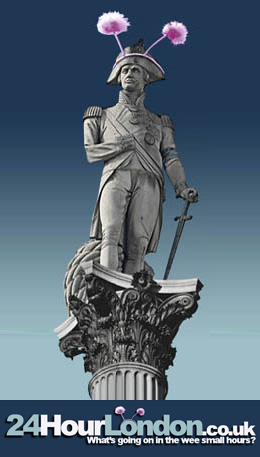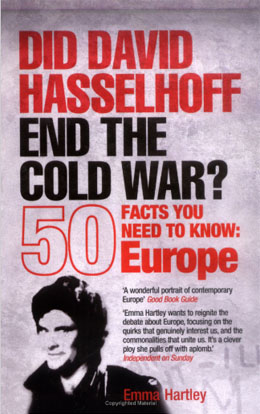'The demonisation of morris dancing is a peculiarly English form of class warfare'
David Cameron had his picture taken with some black-face border morris dancers last week and a kerfuffle ensued.
Was it racially edgy? Much of the mainstream media seemed initially unsure, being apparently unable to play the "some of my best friends are morris dancers" card: I can. (Stand up, James Creaser.) Moreover I was unafraid that border morris dancers blacking up their faces was racist for the simple deductive reason that you couldn't find a more politically correct crowd than folkies and morris dancers: the question of whether border morris is racist has doubtless been discussed over and over again and if it were an issue, someone would be calling for a ban. But they're not. So either it isn't racist or there isn't enough evidence to make a case. The interesting part was that the Guardian – the natural political home of most folkies – didn't sense this in its bones. It took a few days before Martin Kettle was able to say something less than standoffish about morris.
By that time border morris dancer James Bell had also written a frankly enormous blog post on the subject, in which he tied himself in knots and, in the process, posted a brilliant video of Christopher Walken dancing (thanks!). Because of James's direct involvement it's interesting to read what he has to say. But he basically didn't know if black-face was racist. What I learned from his peroration was, once again, that morris dancers are a very politically correct, extremely nice bunch of people who really don't want to offend anyone, which is kind of where I started.
Every country's relationship with its traditional music and dance is essentially its relationship with its own past. The Germans have a huge problem with their folk music as it was recently appropriated either by the Nazis or the communists, depending on which side of the east/west divide they were on. But the English are nearly as uneasy, which takes some thinking about.
I mean, how come morris dancing is so widely thought of as ridiculous? Is it really any sillier than dressing up in lederhosen, playing the bagpipes or any number of other European traditions?
I would suggest this: the greatest trick the British ruling class ever pulled off - as an intrinsic part of the steep class distinctions we choose to maintain in the UK - was making its underclass ashamed of themselves, the sound of their own voices and their traditions: hence the collective national cringe over our folk song and dance. What could be more embarrassing than morris dancing to anyone but the proudly thick-skinned and the contrarian? It's hard to imagine. If you attacked anyone else's folk traditions you'd be under suspicion of racism yet it's OK to attack the harmless pastime of your own underclass, branding it ridiculous over and over in order to try and suck the pride from it. The demonisation of morris dancing is a peculiarly English form of class warfare.
Such is the success of this false class consciousness that even Terry Eagleton, the supposed Marxist, said in the Guardian the Saturday before Cameron's black-face episode that if he were king for a day he would execute morris dancers. Thanks a fucking lot, Terry. I mean, what kind of Marxist offers, even in jest, to execute a bunch of his own comrades? An English Marxist, is the answer. One who has been successfully denatured by the ruling class he once opposed. I know that most morris dancers are able to have a laugh at themselves but on this occasion I'm being humourless on their behalf because I think it's important.
The story of England's rural working class has always been a lot about emigration and exile, people turfed off the land and dispossessed: it's just that as soon as the English working class successfully left England they became American, Canadian, New Zealanders, Australians and more. We love our sailing songs because they're a massive part of our history and if there is any shame to be located in the morris perhaps it is that these guys with the hankies, these are the guys who stayed and tried to make a life for their families despite the desperate conditions that had driven their brothers and cousins abroad. They compromised and stayed.
Still. There has been a folk revival over the last decade that could be partly attributed to the comfort that any kind of tradition provides during a recession, partly to that emanation of the English public school system known as Mumford & Sons and partly due to the relatively recent introduction of some folk music awards at the BBC: awards that are taken insufficiently seriously and need a big dose of transparency as a mark of respect for the musicians, the audience and the tradition.
It's just ironic that it should be David Cameron who had his picture taken with the border morris side as - if we believe the narrative about concealment - he's the one they were blacking up to avoid.
* If you enjoyed this post you may also be interested in this about a wonderful film called Way of the Morris.
* If you enjoyed this post you may also be interested in this about a wonderful film called Way of the Morris.
* If you'd like to receive posts from this blog directly into your Facebook newsfeed, you could *like* its Facebook page and then use the drop-down menu to indicate that it's one of your "interests". This will enhance the possibility that you'll get them. You could also follow me on Twitter at @emma1hartley






